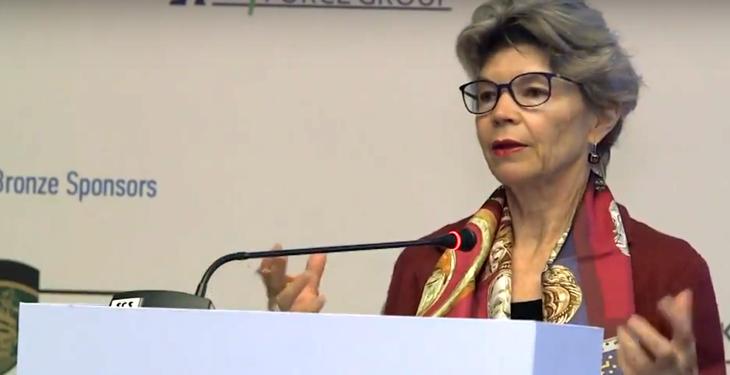Shortly before the 6th edition of the Black Sea Oil & Gas conference one of the conference keynote speakers Megan Richards talked to the organizers about European Commission’s role in the Black Sea region.

Megan Richards, the Director of Energy Policy, DG Energy, European Cimmission
In an interview the role of the EU has been addressed. The Black Sea Synergy is bottom up project development framework aiming to ensure greater coherence and guidance. The objective is to focus on cross border trade, environment, fisheries, and energy among other areas of cooperation. Non-EU energy reforms in Ukraine and Moldova play a major role in connecting European consumers with Caspian gas. The Commission is active in Central and South Eastern Europe Connectivity (CESEC) initiative that accelerates the integration of the regional gas market. It complements the existing policies addressing the European Neighborhood, Turkey, and Russia.
European Commission established the minimum safety requirements with the Directive of offshore safety (2013/30/EU) focusing on environment, protection and emergency response across the EU. The Hydrocarbons’ Directive set in 1994 provides rules on licensing to ensure competitive procedures, transparency, and fairness. The two initiatives provide a platform for responsible development across the range of European member states, as well as providing the guidance for regional players.
The role of the European Commission extends to ensuring the European energy security. The Southern Gas Corridor is a priority project that will enhance energy security and diversification goals. CESEC initiative concentrates on improving the co-operation and infrastructure developments for natural gas between the countries of Central and South-Eastern Europe. It has extended its range to cover electricity, renewables and energy efficiency. The aim is to improve physical interconnectors ensuring secure and reliable network.
The key challenge is to transfer from highly concentrated market with more actors. To move away from administrative pricing to more competition enriched market. The European Commission is dedicated to lower the barriers to entry into the energy market with Third Energy Package initiative. It aims to break up the market monopolization by separating upstream and midstream sectors and increase the competitiveness.
The European Commission’s Cross-Border Cooperation Programme sets the path towards harmonization of regulations and trade policy. Actively supports the development of LNG stations and diversification of energy supply. The UK remains the largest supplier of offshore oil (71% of EU production).
According to BP’s Statistical Review of World Energy 2018, Romania’s total proven gas reserves at the end of 2017 (offshore and onshore) were 0.1 trillion cubic meters; compared to the year 2007 (0.6 trillion cubic meters) estimated gas reserves declined sharply. To ensure full benefits from offshore oil and gas exploration, Romania and Bulgaria must apply in full the provisions of the “Hydrocarbons’ Directive” on licensing conditions, which shall ensure the engagement of competitive and qualified investors in new exploration.
